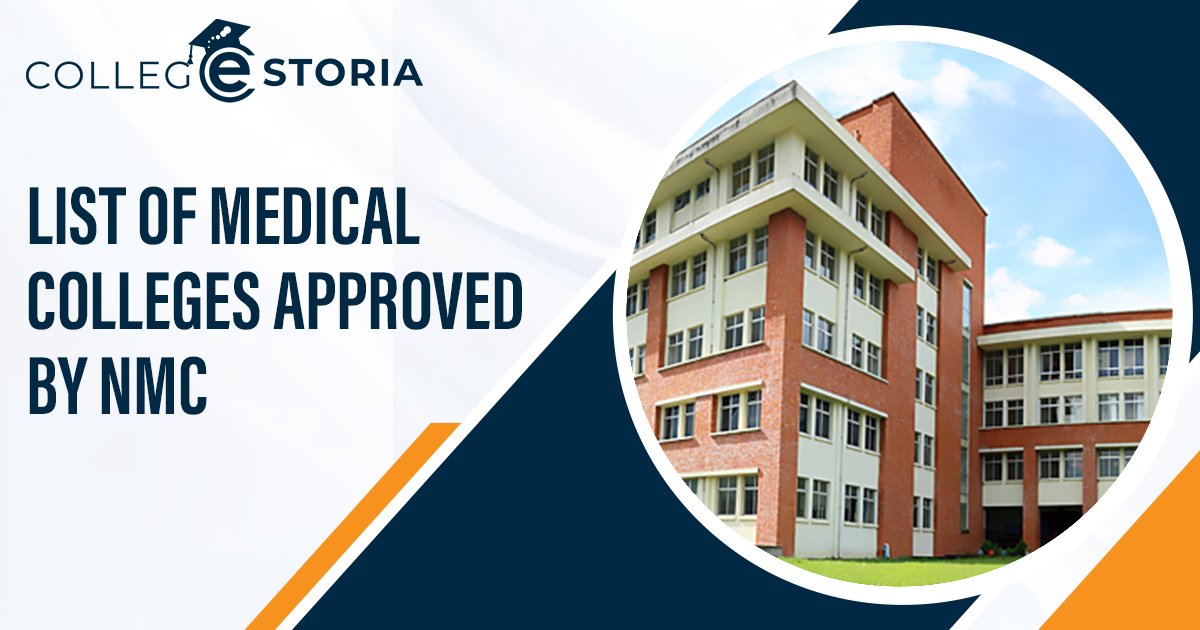
Starting a journey towards a career in medicine is a significant decision that requires careful consideration and planning. For aspiring medical professionals, choosing the right institution is crucial in realizing their dreams of healing and service. In Nepal, the Nepal Medical Council (NMC) serves as the regulatory body responsible for accrediting medical colleges and ensuring the quality of medical education across the country. Collegestoria is a platform that provides expert guidance for Medical Admission Counselling in Nepal. From Admission in Neet PG to MD/MS Admission in Nepal, Collegestoria provides counselling for various higher education options. In this comprehensive guide, Collegestoria presents a curated list of NMC-approved medical colleges in Nepal, offering valuable insights for prospective students seeking to pursue their medical education.
NMC Accreditation
The Nepal Medical Council (NMC) plays a pivotal role in regulating Medical Admission Counselling in Nepal. To maintain standards of excellence, quality, and professionalism in medical education, the NMC, the governing organization that oversees medical colleges and practitioners, assesses and accredits medical institutions.
List of Medical Colleges in Nepal that are approved by NMC
B.P. Koirala Institute of Health Sciences
Chitwan Medical College
Institute of Medicine, Tribhuvan University
Janaki Medical College
Kathmandu Medical College
Kathmandu University School of Medical Sciences
KIST Medical College
Lumbini Medical College and Teaching Hospital
Manipal College of Medical Sciences (MCOMS)
National Medical College, Birgunj
Nepal Medical College
Nepalgunj Medical College
Nobel Medical College
Patan Academy of Health Sciences School of Medicine
Universal College of Medical Sciences
Benefits of Pursuing a Medical Degree from Nepal
High-Quality Education: Nepal is home to several reputable medical colleges that offer high-quality education with modern facilities, experienced faculty, and comprehensive clinical training opportunities. Students receive a rigorous academic curriculum that prepares them for successful careers in medicine.
Affordability: Compared to medical education in India and other countries, pursuing a medical degree in Nepal is often more affordable. Tuition fees and living expenses are relatively lower, making it a cost-effective option for Indian students seeking quality medical education without breaking the bank.
English-Medium Programs: Many medical colleges in Nepal offer medical programs taught in English, eliminating language barriers for Indian students. This ensures easier comprehension of coursework and facilitates effective communication with patients and healthcare professionals.
Global Recognition: Medical degrees obtained from recognized medical colleges in Nepal are globally recognized and accepted by medical councils and licensing bodies worldwide. Indian students graduating from Nepalese medical colleges have the opportunity to pursue further studies or practice medicine in various countries.
Cultural Diversity: Studying medicine in Nepal exposes Indian students to a rich cultural tapestry, fostering cross-cultural understanding and enriching their educational experience. Students have the opportunity to interact with diverse populations, learn from different healthcare practices, and broaden their perspectives.
Clinical Exposure: Nepal’s diverse healthcare system provides ample opportunities for clinical exposure and hands-on training. Students have access to a wide range of clinical settings, including hospitals, clinics, and rural health centres, where they can gain valuable practical experience under the guidance of experienced healthcare professionals.
Eligibility Criteria for MD/MS in Nepal
To be eligible for admission to medical colleges in Nepal, Indian students must meet the following criteria:
Education Requirement: A Bachelor of Medicine, Bachelor of Surgery (MBBS) or a comparable degree accepted by the Nepal Medical Council (NMC) is required.
Internship Completion: After completing your MBBS degree, you must have effectively completed a one-year internship.
Registration with NMC: You need to be registered with the Nepal Medical Council or any other appropriate domestic medical regulating body.
Entrance Exam: To be eligible for admission, you must pass the entrance exam administered by the majority of medical colleges in Nepal. Your proficiency in the medical sciences and suitability for the selected specialization are evaluated by the tests.
Selecting the best medical school is a crucial choice that will affect the direction of your future career in the medical field. You can rest assured that you are getting a top-notch education that satisfies the highest standards of excellence and professionalism by choosing a medical institution in Nepal that has been certified by the NMC. The NMC-approved medical institutions in Nepal provide a wide range of programs and possibilities to support you in achieving your academic and professional goals, regardless of your career aspirations in medicine, dentistry, nursing, or allied health sciences. Consider looking into what these prestigious institutions have to offer, doing extensive research, and getting advice from academic mentors and advisors as you set out on your path to becoming a medical expert. By investing in your education and training at a medical institution in Nepal that has been accredited by the NMC, you are setting the stage for a fulfilling and significant profession that is devoted to the noble goals of compassion, service, and healing.